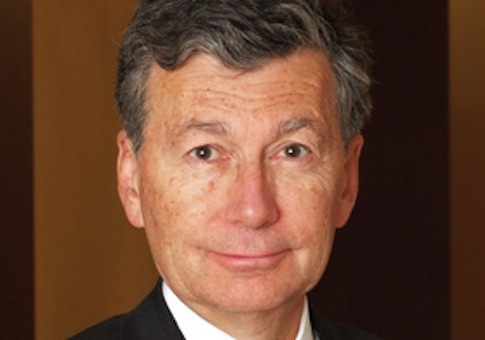A former Federal Communications Commission chairman last week reversed his position on controversial media ownership rules, noting his new position could impede efforts by public figures with whom he disagrees politically to purchase media properties.
Reed Hundt, a FCC chairman appointed by President Bill Clinton, previously supported a rule that is preventing a potential sale of the Los Angeles Times to the Rupert Murdoch-owned News Corp. in 2003. He now says he would favor repealing that rule, which could keep Koch Industries from purchasing the Tribune Company, the current owner of the Times.
Though he denied that was the intent of his shift in position, Hundt acknowledged he would prefer News Corp. own the Times rather than the Koch brothers.
"I can't imagine anything good from the Koch family owning the Los Angeles Times," Hundt, a self-described "progressive," told a crowd at the University of California, Los Angeles last week.
The rule Hundt previously supported and now opposes limits the ability of a single company to own both broadcast and print media outlets.
News Corp. already owns the Fox Broadcasting company and the Fox News Channel. Hundt said he’d rather that company buy the Tribune Co. than Koch Industries, which he claimed "use[s] money and media to misinform, misdirect, and make miserable all of us."
News Corp. has reportedly sought approval from the FCC for an acquisition of some or all of the Tribune Co.’s holdings.
Hundt was a strong proponent of current rules restricting cross-ownership of media properties. He called efforts to roll back those rules "the culmination of the attack by the right on the media," in 2003.
Koch Industries accused Hundt of blatant hypocrisy.
"Mr. Hundt has changed his point of view and now wants the rules against cross ownership relaxed so someone other than the Kochs, with whom he disagrees on political and public policy issues, can own the LA Times," the company wrote in a statement on its website.
"While Mr. Hundt once claimed to believe that the public interest was served best by ‘market structures that provide multiple voices’ and was against ‘regulations that tell people what to say,’ he now wants to silence Koch’s point of view by changing the regulatory process," the statement said.
Hundt insisted he did not want politics to influence the FCC’s decision.
"The former FCC chair can have a preference about who owns a newspaper or a TV station," he said. "But the current FCC chair should let the market decide that. We should honor the freedom to own the means of speech."
